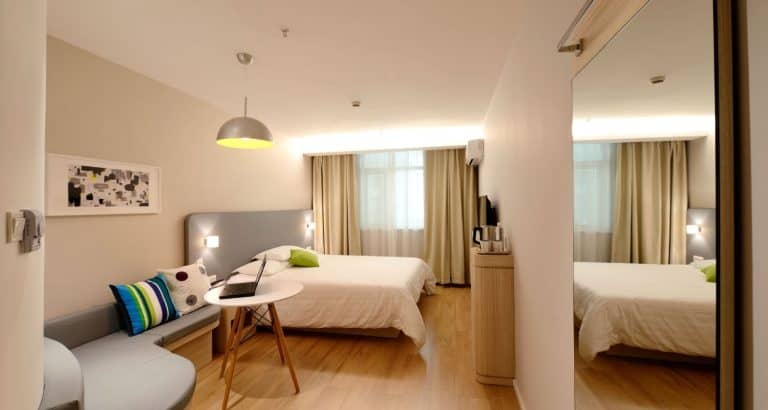Do Hotels Charge Per Person? A Comprehensive Guide
Traveling can be an exciting adventure, but it also comes with its fair share of expenses. One of the most significant costs associated with travel is accommodation, and understanding how hotels charge for their services is crucial.
Whether you’re planning a family vacation, a romantic getaway, or a business trip, the question ‘do hotels charge per person?’ is bound to cross your mind.
If you’re short on time, here’s a quick answer to your question: Hotels typically charge per room, not per person. However, there are exceptions to this rule, and the pricing structure can vary depending on factors such as the hotel’s policies, location, and the type of room you book.
In this comprehensive article, we’ll delve into the intricacies of hotel pricing, exploring the various factors that influence whether hotels charge per person or per room. We’ll also provide valuable tips and strategies to help you navigate the booking process and ensure you get the best value for your money.
The Standard Practice: Hotels Charge Per Room
When it comes to booking a hotel stay, one of the most common questions that arises is: “Do hotels charge per person or per room?” The standard practice in the hospitality industry is that hotels typically charge per room, not per person.
This means that the room rate quoted is for the entire room, regardless of how many guests are staying in it.
Understanding the Room Rate
The room rate at a hotel is typically based on various factors, such as the hotel’s location, amenities, seasonality, and room type. For example, a luxury hotel in a prime city center location will likely have higher room rates than a budget hotel in a suburban area.
The room rate may also fluctuate based on demand, with higher rates during peak travel seasons or major events.
When you book a room, the quoted rate is for the entire room, not per person. So, whether you’re traveling solo or with a group, the room rate remains the same. This is great news for those traveling in groups or families, as it allows them to split the cost of the room among multiple people, making it more affordable.
Exceptions to the Rule
While charging per room is the standard practice, there are some exceptions to this rule. In certain situations, hotels may charge an additional fee or supplement for extra guests beyond a certain number.
This is more common in places with high tourist traffic or during peak seasons when occupancy rates are high.
- Some hotels may charge an additional fee for each guest beyond two or four people in a room, depending on their policies.
- Resorts or all-inclusive properties may charge a per-person rate that includes meals and other amenities.
- Certain hotels may offer discounted rates for children under a specific age when sharing a room with adults.
It’s always a good idea to check the hotel’s policies and inquire about any additional charges for extra guests before booking your stay.
Additional Fees and Charges
While the room rate itself is typically charged per room, hotels may add other fees and charges to your final bill. These can include:
- Resort fees or destination fees
- Parking fees
- Charges for additional services or amenities (e.g., spa treatments, room service, laundry)
- Taxes and surcharges (which can vary based on location)
To avoid any surprises, it’s crucial to carefully review the hotel’s policies and inquire about any additional fees or charges that may apply during your stay. Some reputable travel websites like TripAdvisor and Booking.com provide detailed information on fees and charges for various hotels, making it easier to compare and budget accordingly.
Factors That Influence Hotel Pricing
When it comes to determining hotel rates, there are several key factors that come into play. From the location and demand to the hotel’s category and amenities, as well as seasonality, special events, and the length of your stay, these elements can significantly impact the price you’ll pay for your accommodations.
Let’s dive into each of these factors in more detail.
Location and Demand
The old adage “location, location, location” rings true in the hotel industry. Hotels situated in prime locations, such as city centers, tourist hotspots, or near major attractions, tend to command higher rates. Additionally, the level of demand for rooms in a particular area can drive up prices.
According to a study by Hotel Management, hotels in popular destinations like New York City and San Francisco can charge upwards of 30% more than the national average due to their desirable locations and high demand.
Hotel Category and Amenities
The star rating and category of a hotel play a significant role in determining its pricing. Luxury hotels with top-notch amenities, such as spas, fine dining restaurants, and lavish decor, typically come with a heftier price tag compared to budget or mid-range hotels.
As stated by Statista, the average daily rate for luxury hotels in the United States was around $338 in 2021, while upscale hotels averaged $187 per night.
Seasonality and Special Events
Hotel rates can fluctuate significantly based on seasonality and special events. During peak travel seasons, such as summer or holidays, hotels often raise their rates due to increased demand. Similarly, major events like festivals, conventions, or sporting events can drive up prices in the surrounding area.
For instance, hotels in Las Vegas can charge up to 50% more during high-demand periods like New Year’s Eve or major boxing matches, according to Vegas Means Business.
Length of Stay
The duration of your stay can also impact hotel pricing. Many hotels offer discounted rates for longer stays, as it helps ensure a consistent occupancy level. Conversely, shorter stays, especially during peak periods, may come with a premium price tag.
According to Hotel News Resource, hotels typically offer discounts ranging from 10% to 25% for stays of a week or longer, incentivizing guests to extend their visits.
Understanding these key factors can help you make informed decisions when booking your hotel stay and potentially save you money in the process. Don’t forget to also consider loyalty programs, package deals, and booking in advance to score the best rates possible. Happy travels! 👏✈️
Booking Strategies for Optimal Value
Advance Booking and Discounts
One of the most effective ways to get the best value when booking a hotel room is to plan ahead and book in advance. Many hotels offer significant discounts for early bookings, sometimes up to 20% off or more. This is especially true during peak travel seasons or major events.
By booking early, you can lock in lower rates and enjoy substantial savings. 😊 According to a study by TravelWeekly, travelers who book at least 21 days in advance save an average of 15% on hotel rates.
Negotiating Rates
Don’t be afraid to negotiate rates with hotels, especially if you’re booking for an extended stay or a group. Many hotels are willing to offer discounts or package deals to secure bookings. You can also check for corporate rates or government rates, which are often lower than standard rates.
Additionally, some hotels offer discounts for AAA members, AARP members, or members of other organizations.
Loyalty Programs and Memberships
Joining hotel loyalty programs can provide significant savings and perks over time. These programs typically offer discounted rates, free nights, room upgrades, and other benefits to loyal members. According to a study by Statista, 75% of travelers find hotel loyalty programs valuable.
Some popular loyalty programs include Marriott Bonvoy, Hilton Honors, and IHG Rewards Club.
Bundled Packages and Deals
Many hotels offer bundled packages that include not only the room rate but also amenities like breakfast, parking, or access to on-site facilities. These packages can provide significant value and savings compared to booking each component separately.
Additionally, keep an eye out for seasonal or promotional deals offered by hotels, which can include discounted rates, free nights, or other perks. 😍 Websites like Expedia and TravelZoo are great resources for finding bundled packages and deals.
By employing these booking strategies, you can maximize your value and ensure you’re getting the best possible deal on your hotel stay. Don’t be afraid to ask questions, negotiate, and take advantage of loyalty programs and bundled offers. Happy travels! 🎉
Special Considerations for Group Bookings
Group Rates and Discounts
When it comes to group bookings, hotels often offer special rates and discounts to accommodate larger parties. These group rates can vary significantly from the standard room rates, making it an attractive option for organizations, families, or groups of friends planning a trip together.
According to a survey by HotelNewsResource.com, over 70% of hotels offer discounted group rates for bookings of 10 or more rooms.
The discounts can range from 10% to 30% off the regular room rates, depending on the size of the group and the hotel’s occupancy levels. Some hotels even offer additional perks like complimentary meeting spaces, discounted meals, or free Wi-Fi for group bookings.
😊 However, it’s important to note that these group rates often come with minimum stay requirements and strict cancellation policies, so it’s crucial to read the fine print carefully.
Room Allocation and Minimum Stay Requirements
When booking a group stay, hotels typically allocate a block of rooms for the group, ensuring that everyone can stay together. This room allocation process can be a bit tricky, as hotels often require a minimum number of rooms to be booked or a minimum length of stay.
For example, some hotels may require a minimum of 10 rooms booked for at least two nights to qualify for group rates.
These minimum stay requirements are designed to ensure that the hotel can maximize occupancy and revenue during peak seasons or events. It’s not uncommon for hotels to ask for a non-refundable deposit or even full payment upfront for group bookings to secure the room block.
👍 If you’re planning a group trip, it’s wise to inquire about these requirements early on to avoid any surprises or additional costs.
Negotiating Group Contracts
For larger groups or corporate events, hotels often require a formal group contract to be signed. These contracts outline the terms and conditions of the booking, including room rates, cancellation policies, and any additional services or amenities requested by the group.
Negotiating a favorable group contract can be a daunting task, but it’s crucial to ensure that your group’s needs are met and that you’re getting the best value for your money. Some key points to consider during negotiations include:
- Room rates and discounts
- Complimentary rooms or upgrades for group leaders
- Meeting space and audio-visual equipment rental fees
- Catering and banquet minimums
- Cancellation and attrition policies
It’s always a good idea to have an experienced event planner or negotiator on your side to ensure that you’re getting the best possible deal. According to a study by MeetingsNet, groups that negotiated their contracts effectively saved an average of 15% on their overall event costs.
| Group Size | Average Discount |
|---|---|
| 10-20 rooms | 10-15% |
| 21-50 rooms | 15-20% |
| 51+ rooms | 20-30% |
Navigating Hotel Policies and Fine Print
When booking a hotel stay, it’s crucial to navigate the fine print and understand the policies that govern your reservation. These policies can significantly impact your travel experience and budget, so it’s essential to be well-informed.
Don’t let the excitement of your upcoming trip blind you to the details that could lead to unexpected charges or disappointments.
Cancellation and Refund Policies
Hotels often have strict cancellation and refund policies, and failing to adhere to them can result in hefty fees or even forfeiting your entire payment. These policies vary widely, with some hotels offering more flexible options than others.
According to a study by TripAdvisor, nearly 60% of travelers have experienced difficulty with hotel cancellation policies, highlighting the importance of understanding them before booking.
Be sure to read the fine print carefully and note the deadlines for cancellations and refunds. Some hotels may offer a full refund if you cancel within a certain timeframe, while others may charge a percentage of the total cost or impose a flat fee.
Additionally, consider purchasing travel insurance, which can provide coverage in case of unexpected circumstances that necessitate cancellation.
Occupancy Limits and Additional Guest Fees
Most hotels have occupancy limits for their rooms, which dictate the maximum number of guests allowed. Exceeding these limits can result in additional fees or even denial of accommodation. Moreover, some hotels charge extra for additional guests, even if you’re within the occupancy limit.
These fees can quickly add up, especially for larger groups or families.
According to a survey by Hotels.com, nearly 40% of travelers have been caught off guard by unexpected occupancy fees. To avoid surprises, carefully review the hotel’s occupancy policies and inquire about any additional guest fees before booking.
Consider booking larger rooms or suites if you’re traveling with a larger group to potentially save on additional guest fees.
Taxes and Resort Fees
Taxes and resort fees are often overlooked when comparing hotel rates, but they can significantly impact the overall cost of your stay. Taxes, which vary by location, are typically mandatory and non-negotiable.
However, resort fees, which are charged by some hotels to cover amenities like pools, fitness centers, and Wi-Fi, are often optional and can be substantial.
According to a report by the Federal Trade Commission, resort fees have been a source of frustration for many travelers, with some fees reaching as high as $50 per night. 😮 To avoid sticker shock, always inquire about taxes and resort fees upfront and factor them into your budget.
Some travelers even choose to book hotels without resort fees to save money, especially if they don’t plan to use the included amenities.
By understanding these key hotel policies and fine print, you can make informed decisions and avoid unexpected charges or disappointments during your stay. Don’t let the excitement of your trip overshadow the importance of reading the fine print – it could save you a significant amount of money and hassle in the long run.
💰💸
Conclusion
As you can see, the question ‘do hotels charge per person?’ is not as straightforward as it may seem. While the standard practice is for hotels to charge per room, there are various factors and exceptions that can influence the pricing structure.
By understanding the intricacies of hotel pricing, you can make informed decisions and ensure you get the best value for your money. Whether you’re booking a solo trip, a family vacation, or a group event, being aware of the factors that influence hotel rates, employing effective booking strategies, and carefully reviewing policies and fine print can help you navigate the process with confidence.
Remember, the key to a successful and cost-effective hotel stay lies in thorough research, flexibility, and a willingness to explore different options. With the right knowledge and approach, you can find the perfect accommodation that meets your needs and budget, allowing you to focus on creating unforgettable travel memories.







